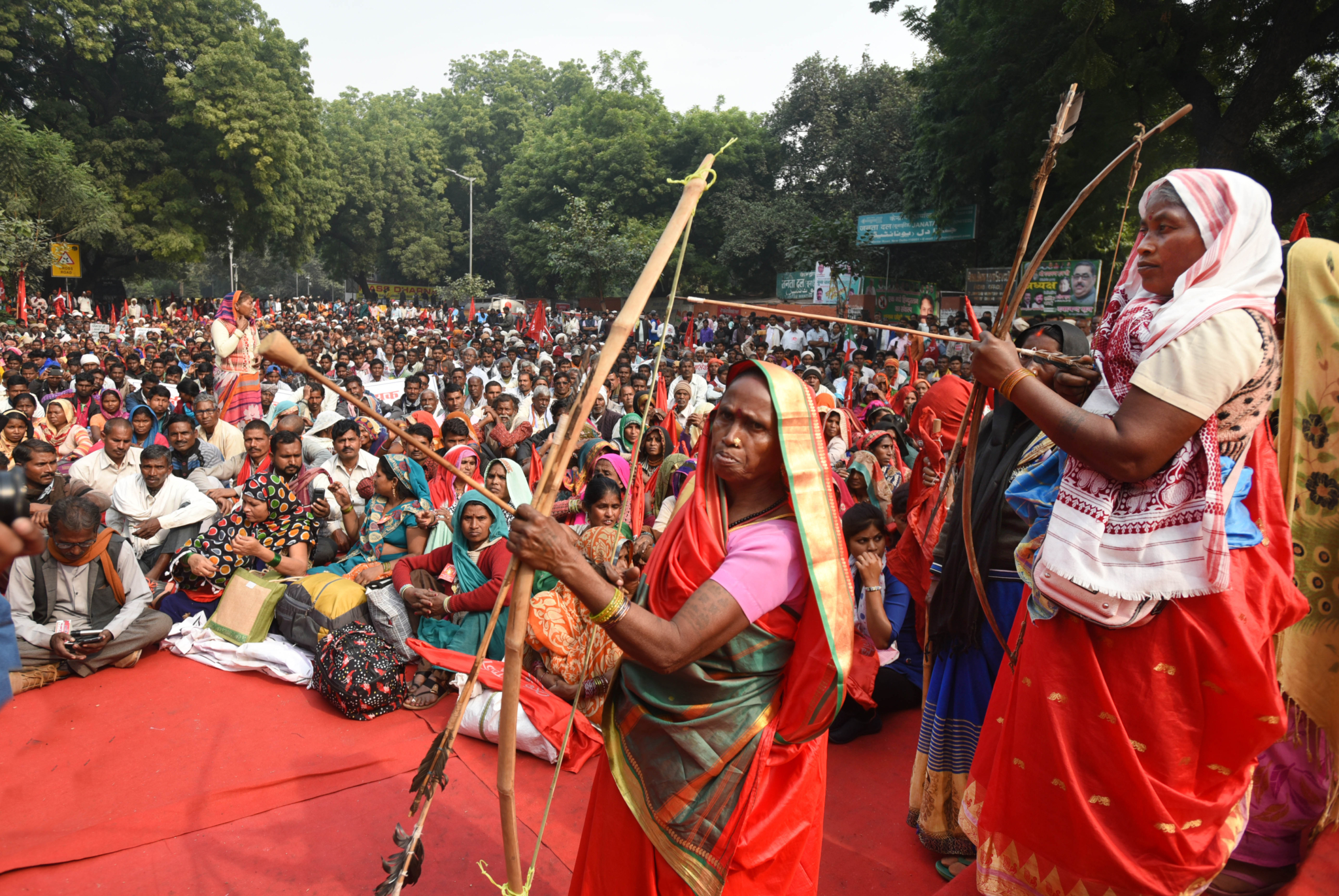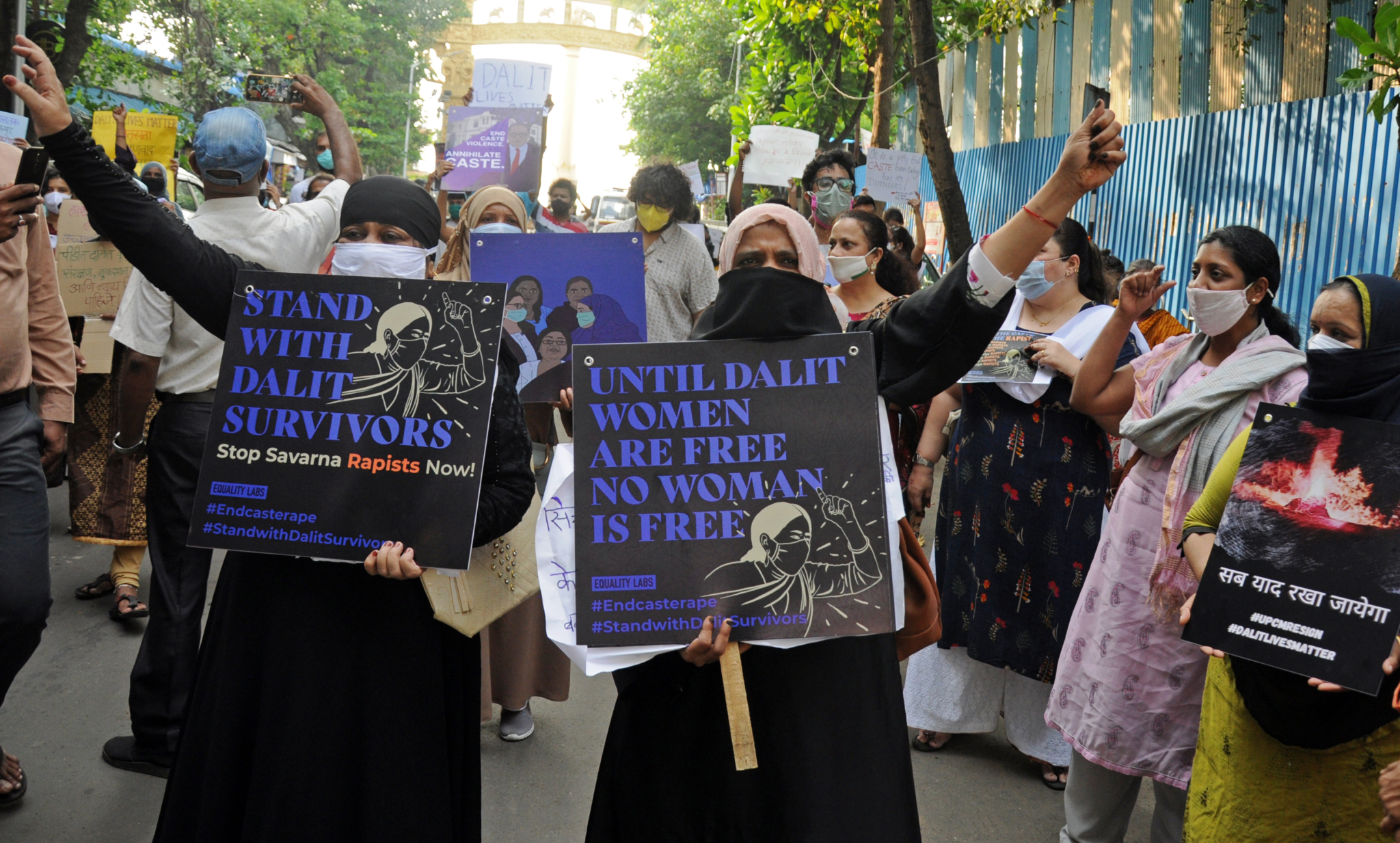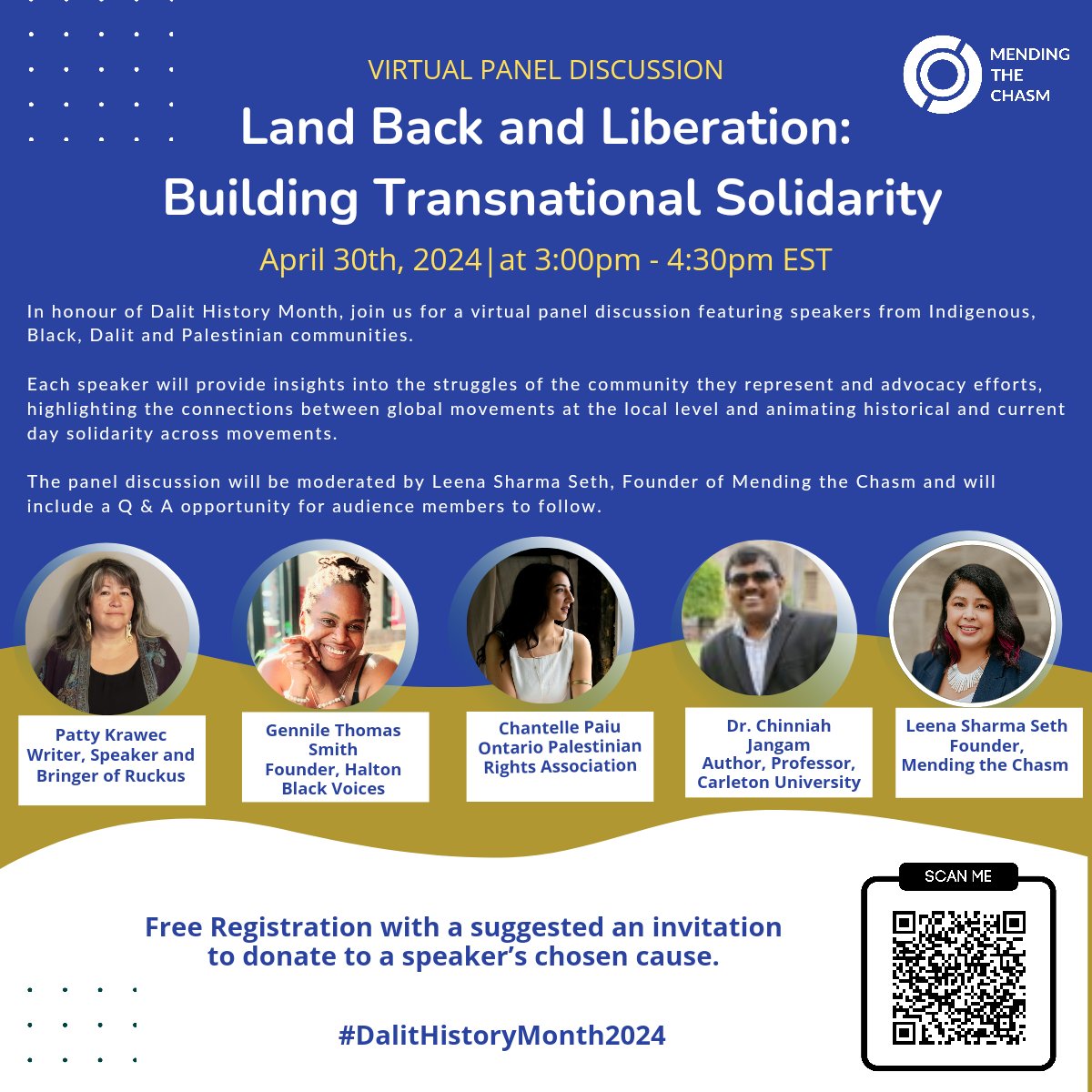April is Dalit History Month. In Canada, the celebration of Dalit History Month provides an opportunity to amplify the experiences of the Dalit and Adivasi diaspora and to honour the resilience and resistance of Dalit and Adivasi communities against casteism, colonialism, white supremacy and racism.
What is caste and casteism?
Caste is an exclusionary social category that ranks people at birth while casteism is a form of systematized oppression where caste-oppressed groups are ranked hierarchically according to ritual status, purity, and occupation. Casteism impacts more than 260 million people worldwide.
Dalit people are deemed the lowest caste group within the Hindu caste system in India and other parts of South Asia. They are caste-oppressed communities that were forced by casteism into enslavement and indentured agricultural labor and sanitation work like manual scavenging. Branded “untouchable” for jobs considered ‘spiritually polluting’, they struggle against brutal violence and discrimination. They go by the term Dalit meaning “broken but resilient.”
Adivasis are the Indigenous peoples of South Asia. Adivasi communities are experiencing historical and ongoing rights violations, discriminatory policies, environmental racism and expropriation of their traditional lands. Amnesty International has amplified how Adivasi communities in India impacted by coal mining are experiencing violations of their rights to consultation and consent regarding land acquisition, environmental impacts, and Indigenous self-governance.
Together these caste-oppressed communities face historical and ongoing systemic discrimination, social exclusion and socio economic inequalities by privileged caste groups while Dalit and Adivasi women continue to experience sexual and gender-based violence.

Casteism in Canada
Dalit and Adivasi communities have continued to experience casteism and exclusion within diasporic communities. This discrimination has manifested in various forms, including social othering and ostracism, limited access to resources, and education and employment based discrimination.
“Throughout my journey to become one of the few Dalit social workers in Canada, I saw so much casteism: from people discussing the segregation of their places of worship to the casual cruelty of caste slurs and jokes…equating Dalit people with criminals, saying we were dirty, uncultured, flawed and depraved, that we were the rapists and thieves back home.”
-Vijay Puli, Executive Director, South Asian Dalit and Adivasi Network (SADAN), Tkaronto

Celebrating Dalit and Adivasi resistance
Despite these challenges, Dalit and Adivasi communities have persevered and fought for their rights in India, Nepal, Pakistan and in diaspora communities around the world, including Canada.
In February 2023, The Toronto District School Board became the first school board in Canada to recognise the persistence of casteism in schools and committed to calling on the Human Rights Commission to create a framework to address casteism in the public education system.
In October 2023, The Ontario Human Rights Commission officially recognized caste-based discrimination under the Ontario Human Rights Code in a policy statement and its impact on intersectionally marginalized groups.
The province of British Columbia and the City of Burlington have also officially recognized April as Dalit History Month due to the efforts of Dalit and Adivasi-led organizations.
Take Action
During Dalit History Month and beyond various events and activities are organized across Canada to raise awareness about casteism, invite action and promote solidarity with Dalit and Adivasi communities.
Individuals, organizations, and policymakers in Canada can take steps to support Dalit and Adivasi communities through:
- Education about casteism and its impact on Dalit, Adivasi and other caste-oppressed communities and collectively challenging casteism and caste-based stereotypes in Canada.
- By supporting Dalit and Adivasi-led organizations and initiatives.
- By amplifying Dalit and Adivasi diasporic voices and stories in mainstream media and public discourse.
While celebrating Dalit History Month is essential, it is also important to recognize that solidarity with caste-oppressed communities extends beyond a month-long observance. It requires ongoing commitment to challenging casteism, racism and systemic discrimination and advocate for social justice and equity for all.
LEARN MORE
- Listen to the Dalit communities experiences with casteism in British Columbia on CBC Listen: The Afternoon Edition – Sask with Peter Mills
- Read the Equality Labs powerful report: Caste in the United States. This report builds on a 2016 community driven survey that demonstrates evidence of casteism in the U.S. The report also outlines how South Asian diasporic communities grapple with white supremacy while reproducing casteism and anti-Black racism.
- Watch the virtual event organized by South Asian Dalit Adivasi Network (SADAN): “Being a Dalit Queer: Caste and Queerness”
- Donate to SADAN: Fundraiser for Dalit History Month- April 2024
- Attend events and initiatives organized by and for Dalit and Adivasi communities across Canada!













